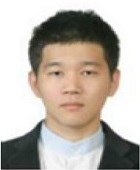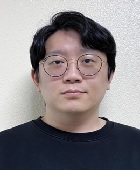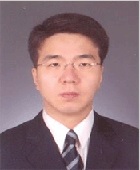
액티브 시니어를 위한 머신 러닝 기반 거동 분석 시스템 구축
Abstract
Gait impairment is one of the main symptoms of neurodegenerative diseases such as dementia, Parkinson’s disease, etc. For this reason, lots of previous studies tried to develop new methodologies based on statical analysis for predicting brain diseases. Statistical analysis is a good choice for solving most engineering problems. However, neurodegeneration patients cannot wait for progression because of their limited time. In this study, we focused on analysis time reduction. We acquired ten sets of the gait sample by Arduino pro micro using the MPU6050 accelerometer. The sampling frequency was 200Hz, and data were acquired on the x, y, and z acceleration, pitch, roll, and yaw. The raw data sets were pre-processed to 100 normal and 60 abnormal gait data, where ten were used in the test, and the others in the study of the machine. The machine learning achieved an 80% total accuracy at the end of this study.
Keywords:
Machine learning, Gait recognition, Active senior, Condition monitoring, Healthcare, Aged societyReferences
- United Nations, Department of Economic and Social Affairs, Population Division, 2020, World Population Ageing 2019 (ST/ESA/SER.A/444), United Nations, N.Y, U.S.A..
-
Kim, D. H., Jung, H. W., Lee, D. H., Seung, M. E., 2019, Cognitive Error on the Age of Death by Stratum and Its Implications, J. Risk Management, 30:2 1-32.
[https://doi.org/10.21480/tjrm.30.2.201906.001]

- Statics Korea, 2018, viewed 30 March 2022, 2017 Population and Housing Census, <http://kostat.go.kr/portal/eng/pressReleases/8/7/index.board, >.
- Statics Korea, 2021, viewed 30 March 2022, 2020 Population and Housing Census, <http://kostat.go.kr/portal/eng/pressReleases/8/7/index.board, >.
- He,W., Goodkind, D., Kowal, P., 2016, International Population Reports, P95/16-1, An Aging World: 2015, U.S. Government Publishing Office, Washington, DC, U.S.A..
-
Wang, L., Lee, J. G., Hwang, J. H., 2019, A Big-Data Analysis on Older Adult’s Health and Safety Issues, J. Korea Contents Association, 19:4 336-344.
[https://doi.org/10.5392/JKCA.2019.19.04.336]

- Statics Korea, 2021, viewed 30 March 2022, Birth Statistics in 2020, Statics Korea, <http://kostat.go.kr/portal/eng/pressReleases/8/10/index.board, >.
- Organization for Economic Cooperation and Development, n.d., viewed 7 December 2021, Fertility Rates, Total, Children/woman, 1970-2020, <https://data.oecd.org/pop/fertility-rates.htm, >.
- Lee, S. L., 2012, Labor Force Shortage Projection and Policy Implications : Impact of Demographic Transition in Korea, Korea J. Population Studies, 35:2 1-28.
- Kim, D. H., Lee, B. J., Ryu, K. S., 2011, An Analysis on Adverse Selection in Annuity Markets, Korean J. Insurance, 90 1-25.
-
MacMinn, R., Brockett, P., Blake, D., 2006, Longevity Risk and Capital Markets, J. Risk Insur., 73:4 551-557.
[https://doi.org/10.1111/j.1539-6975.2006.00188.x]

- Visco, I., 2006, Longevity Risk and Financial Markets, In: Balling, M.,Gnan, E., and Lieman, F. (Eds.), Money, Finance and Demography: The Consequences of Ageing, SUERF, Vienna, Austria, 9-30.
- Organization for Economic Cooperation and Development, n.d., viewed 7 December 2021, Life Expectancy at Birth, <https://data.oecd.org/healthstat/life-expectancy-at-birth.htm, > .
-
Kim, K. B., 2014, The Characteristics of Traffic Accidents and Reduction Methods by Elderly Drivers to Prepare for the Aging Society -Focused on Jeju-, J. Korea Contents Association, 14:7 151-160.
[https://doi.org/10.5392/JKCA.2014.14.07.151]

- Korean Consumer Agency, 2017, viewed 7 December 2021, In-depth Analysis for The Aged Safety Accident, <https://www.kca.go.kr/smartconsumer/sub.do?menukey=7301&mode=view&no=1002589012, >.
- Jeong, H., 2004, How Aging Affect Human Learning Ability?, Korean J. Experimental Psychology, 16:4 435-450.
- Lee, K. J., Lee, M. R., Cho, Y. H., 2008, A Study on Safety Awareness and Accidents in Elders, J. Korean Gerontol. Nurs., 10:1 48-57.
- Lee, C. H., 2004, A Study on Factors Affecting Safety Accidents among Elderly People, J. Korean Soc. Emerg. Med. Ser., 8:1 105-115.
- Choi, S. W., Lim, B. N., Lee, J. M., 2009, A Study on Gait Ability and Balance Ability of Dementia-high-risk Senior Citizens, The Korea Journal of Sports Science, 18:2 1117-1124.
-
Davis, A. E., 1995, Hip Fractures in the Elderly: Surveillance Methods and Injury Control, Journal of Trauma Nursing, 2:1 15-21.
[https://doi.org/10.1097/00043860-199501000-00010]

-
Sartoretti, C., Sartoretti-Schefer, S., Ruckert, R., Buchmann, P., 1997, Comorbid Conditions in Old Patients with Femur Fractures, J. Trauma-Injury Infect. Crit. Care., 43:4 570-577.
[https://doi.org/10.1097/00005373-199710000-00002]

-
Stelmach, G. E., Phillips, J., DiFabio, R. P., Teasdale N., 1989, Age, Functional Postural Reflexes, and Voluntary Sway, J. Gerontol., 44:4 B100-B106.
[https://doi.org/10.1093/geronj/44.4.B100]

- Kim, W. H., Yi, C. H., Chung, B. I., Cho, S. H., 1998, Factors Related to Balance Ability in Healthy Elderly, Phys. Ther. Korea, 5:3 21-33.
-
Lee, H. S., Park, S. W., 2017, Assessment of Gait as a Diagnostic Tool for Patients with Dementia, J. Korean Soc. Phys. Med., 12:2 129-136.
[https://doi.org/10.13066/kspm.2017.12.2.129]

- Shin, M. J., Jo, Y. J., Kim, E. Y., Lee, T. W., Yang, Y. A., 2007, The Cognitive Ability and Balance Ability in Health Elderly, The Journal of Occupational Therapy for the Aged and Dementia, 1:1 16-22.
-
Snijders, A. H., Warrenburg, B. P., Giladi, N., Bloem, B. R., 2007, Neurological Gait Disorders in Elderly People: Clinical Approach and Classification, Lancet Neurol., 6:1 63-74.
[https://doi.org/10.1016/S1474-4422(06)70678-0]

- Kim, J. H., Oh, T. Y., 2010, The Comparison of Characteristics of Foot Pressure between Treadmill and Ground Walking in Normal Person, J. Korean Soc. Phys. Med., 5:1 53-61.
-
Jahn, K., Zwergal, A., Schniepp, R., 2010, Gait Disturbances in Old Age, Classification, Diagnosis, and Treatment from a Neurological Perspective, Dtsch. Ärztebl. Int., 107:17 306-316.
[https://doi.org/10.3238/arztebl.2010.0306]

-
Naghavi, N., Wade, E., 2019, Prediction of Freezing of Gait in Parkinson’s Disease Using Statistical Inference and Lower– Limb Acceleration Data, IEEE Trans. Neural Syst. Rehabil. Eng., 27:5 947-955.
[https://doi.org/10.1109/TNSRE.2019.2910165]

-
Din, S. D., Elshehabi, M., Galna, B., Hobert, M. A., Warmerdam, E., Suenkel, U., Brockmann, K., Metzger, F., Hansen, C., Berg, D., Rochester, L., Maetzler, W., 2019, Gait Analysis with Wearables Predicts Conversion to Parkinson Disease, Ann. Neurol., 86:3 357-367.
[https://doi.org/10.1002/ana.25548]


Ph.D. Candidate in the Interdisciplinary Program in Biohealth-Machinery Convergence Engineering, Graduate School, Kangwon National University. His research interest is Hydro Turbo Machinery.
E-mail: it-hing@kangwon.ac.kr

Doctoral Course Student in the Department of Smart Health Science and Technology, Graduate School, Kangwon National University. His research interests are in the development of biomedical instrument.
E-mail: yoo458@kangwon.ac.kr

Master of biotechnology, Kangwon National University. His research interests are Metabolic and Generic Engineering.
E-mail: jaeyun9321@gmail.com

Professor in the Department of Smart Health Science and Technology, Kangwon National University. His research interest is Micro/nano scale surface texturing technologies and digital twin.
E-mail: wkddndrl@kangwon.ac.kr

Professor in the Department of Smart Health Science and Technology, Kangwon National University. His research interest is micro and nano system design and precision control of machine tools.
E-mail: kbh@kangwon.ac.kr

Professor in the Department of Smart Health Science and Technology, Kangwon National University. His research interest is developing biomedical instrument.
E-mail: swche@kangwon.ac.kr

Professor in the Department of Smart Health Science and Technology, Kangwon National University. His research interests are Metabolic and Generic Engineering.
E-mail: sjha@kangwon.ac.kr

Professor in the Department of Smart Health Science and Technology, Kangwon National University. His research interests are PIV, 4D Flow MRI In-vitro cardiovascular and CFD.
E-mail: hojinha@kangwon.ac.kr